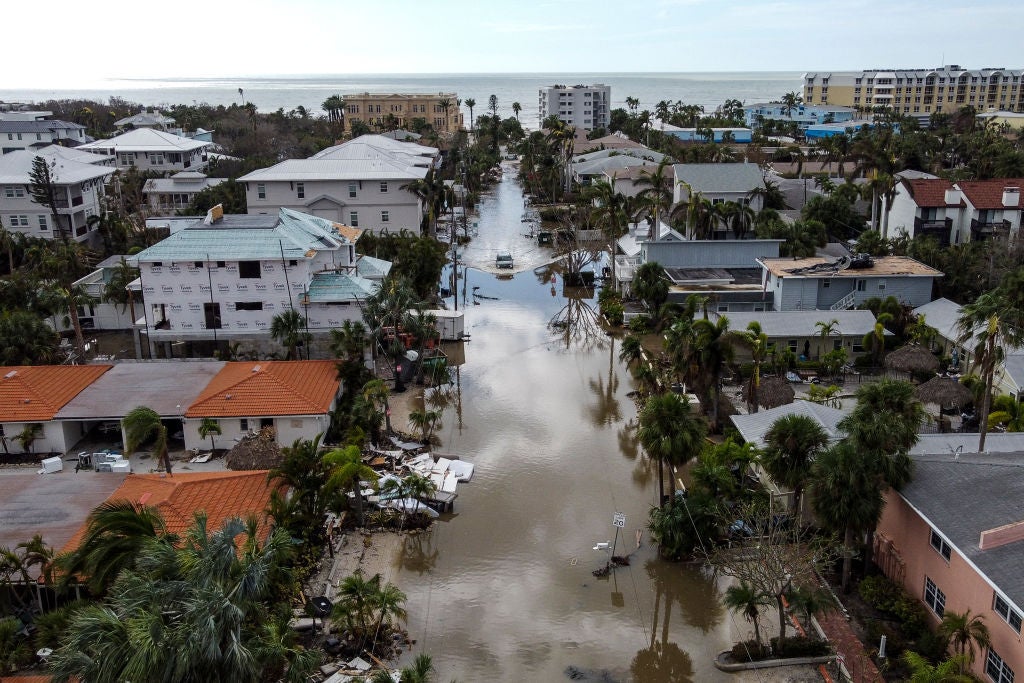DeSantis denies that climate change is making hurricanes more powerful
Speaking at a press conference on Thursday in the wake of Hurricanes Milton and Helene, DeSantis said there was a ‘precedent’ for the immense destruction
Florida governor Ron DeSantis denied that the climate crisis is making hurricanes more powerful, contrary to the opinion of scientists.
Speaking at a press conference on Thursday in the wake of Hurricanes Milton and Helene, DeSantis said there was a “precedent” for the immense destruction.
Both Milton and Helene hit the Sunshine State within two weeks of each other, and have caused historic flooding and devastating destruction. The combined death toll across Florida and other states is approximately 250.
At least 20 tornadoes have been recorded in Florida as Milton surged through the state.
Asked by a reporter if climate change was a factor for the ferocity of Milton and the prescence of more tornadoes, De Santis offered a short history lesson on storms that had hit the state, citing events from the early 20th century that were “head and shoulders” above others.

“There is precedent for all this in history,” DeSantis said. “It is hurricane season. You are going to have tropical weather.”
The governor said that Milton had hit Florida with a barometric pressure of 950 millibars. The lower the barometric pressure, the stronger the storm.
“If you go back to 1851… I think there have been about 27 hurricanes that have had lower barometric pressure on landfall than Milton did,” he said. “And of those, 17 occurred, I think, prior to 1960.
“The most powerful hurricane on record since the 1850s in the state of Florida occurred in the 1930s – the Labor Day Hurricane. The barometric pressure on that was 892 millibars…. We’ve never seen anything like it, and that remains head and shoulders above any powerful hurricane that we’ve ever had in the state of Florida.”
DeSantis also cited the 1928 Okeechobee hurricane that is believed to have killed over 2,000 people. “Fortunately, we aren’t going to have anything close to that in this hurricane… So I just think people should put this in perspective there,” he said.

“They try to take different things that happen with tropical weather and act like it’s something there’s nothing new under the sun. You know, this is something that the state has dealt with for its entire history, and it’s something that will continue to deal with.”
DeSantis’ remarks come in stark contrast to warningsb made by scientists, who say that human-caused climate change has intensified Milton ‘s rainfall by 20 to 30 percent and strengthened its winds by about 10 percent.
World Weather Attribution (WWA) researchers said on Friday that without climate change, a hurricane like Milton would have made landfall as a weaker Category 2, and therefore not have been considered a “major” storm, instead of a Category 3.
WWA’s rapid studies aren’t peer-reviewed but use peer-reviewed methods. The WWA compares a weather event with what might have been expected in a world that hadn’t warmed about 1.3 degree Celsius since pre-industrial times.
Join our commenting forum
Join thought-provoking conversations, follow other Independent readers and see their replies
Comments
Bookmark popover
Removed from bookmarks